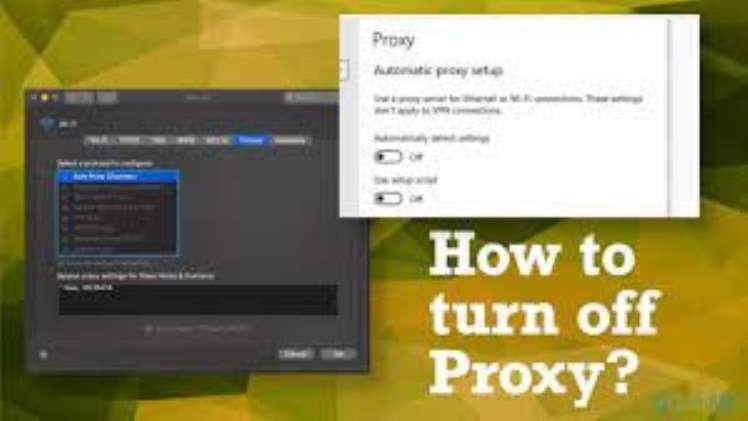
If you’re using a proxy server, chances are you’re doing so to keep your identity and location hidden while you browse the web. But what if you want to turn off those proxy restrictions? Here’s how. First, understand that there are different types of proxy servers. Some are public, and anyone can use them. Others are private, and you need permission from the server administrator to access them. If you’re using a public proxy server, there’s not much you need to do to turn off restrictions. Just find another server that doesn’t have those restrictions in place. Private proxy servers are a little different. If you’re using one of these, you’ll need to contact the administrator and request that they remove the restrictions on your account.
How do I disable proxy or VPN?
If you’re using a proxy or VPN, you may want to disable it to improve your internet speeds. Here’s how to do it on Windows and Mac.
On Windows, open the Control Panel and go to Network and Internet > Internet Options. Under the Connections tab, click the LAN Settings button. Uncheck the Use a proxy server for your LAN box and click OK.
On Mac, open System Preferences and click on Network. Select the Advanced button in the lower-left corner of the window. Go to the Proxies tab and uncheck all the boxes under Select a protocol to configure. Click OK to save your changes.
How do you bypass restrictions on websites?
There are a few ways that you can bypass restrictions on websites. One way is to use a web proxy. A web buy shared proxy allows you to access websites that are blocked by your ISP or network administrator. Another way to bypass restrictions is to use a VPN. A VPN encrypts your traffic and routes it through a server in another location, which can allow you to access websites that are blocked in your country. Finally, you can also try using TOR, which is a software that bounces your traffic through multiple servers so that it is more difficult to track and block.
Does VPN override proxy?
If you’re debating whether a VPN or proxy is best for your needs, you might be wondering if one can override the other. The answer is yes and no. It depends on how you have each service configured.
If you have a VPN configured on your device and try to access a website that’s blocked by a proxy server, the request will be sent to the proxy server first. If the proxy server allows the request, then it will be forwarded to the VPN server. From there, the VPN server will connect to the website on your behalf. Alternatively, if you have a proxy configured and try to access a website that’s blocked by the VPN, the request will be sent to the VPN server first.
Is it safe to turn off proxy?
A proxy server provides a gateway between your computer and the internet. When you browse the web, your computer sends requests to websites that you want to visit. The proxy server then forwards these requests to the websites.
Some people believe that turning off their proxy server will improve their internet speed or privacy. However, there are several risks associated with doing this.
First of all, your computer will be less secure without a proxy server. This is because the proxy server acts as a middleman between your computer and the internet. It can filter out malicious requests and protect your computer from viruses and other attacks.
Secondly, your internet speed will likely decrease without a proxy server. This is because the proxy server caches web pages and resources, so it can deliver them to you faster. Finally, you may lose access to some websites if you turn off your proxy server.
Final Thought:
if you need to turn off proxy restrictions, the best way to do so is by using a VPN. A VPN will allow you to access blocked websites and content, as well as giving you a higher level of security and privacy. If you don’t want to use a VPN, you can also try using a web proxy
